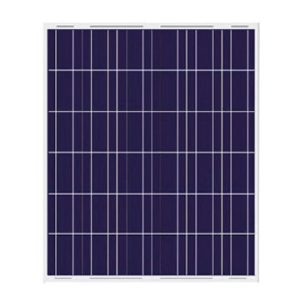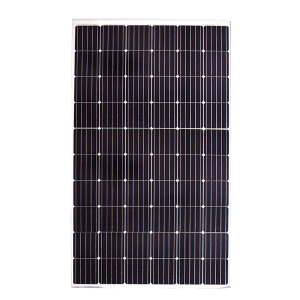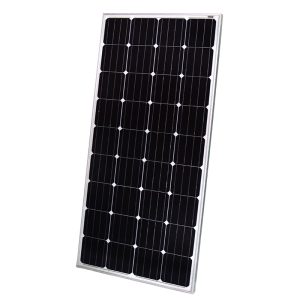Are you considering installing a 10 kW solar panel system in your home? One of the questions you may have is how many units of electricity can a 10 kW solar panel produce? In this article, we’ll explore the answer to this question and provide some additional insights on solar energy production.
Understanding Solar Energy Production
Before we dive into the specifics of a 10 kW system, let’s first explore how solar energy is produced. Solar panels absorb sunlight and convert it into electricity through a process called the photovoltaic effect. The amount of electricity produced depends on several factors, including the size and efficiency of the solar panel system, the amount of sunlight available, and the orientation and tilt of the panels.
Most solar panel systems are designed to produce electricity during the day, when there is sunlight. Excess energy can be stored in batteries or exported to the grid, depending on the setup of the system.
What is a 10 kW Solar Panel System?
A 10 kW solar panel system is a mid-sized system that is suitable for larger homes, small businesses, or farms. It typically consists of around 30-40 solar panels, depending on the panel’s efficiency and size.
How Many Units of Electricity Can a 10 kW Solar Panel System Produce?
The amount of electricity that a 10 kW solar panel system can produce depends on several factors, including:
- Location: The amount of sunlight available varies depending on the location. In areas with more sunshine, a 10 kW system can produce more electricity than in areas with less sunshine.
- Efficiency: The efficiency of solar panels varies depending on the manufacturer and the technology used. More efficient panels can produce more electricity per panel.
- Angle and orientation: The angle and orientation of the panels can have a significant impact on the amount of electricity produced. Panels that face south and have an optimal tilt angle generally produce more electricity.
On average, a 10 kW solar panel system can produce between 30-40 kWh of electricity per day, depending on the above factors. Over the course of a year, this adds up to roughly 11,000-14,600 kWh of electricity per year.
Benefits of a 10 kW Solar Panel System
There are several benefits to installing a 10 kW solar panel system in your home, including:
- Reduced electricity costs: A 10 kW system can significantly reduce your electricity bills, especially if you use most of your electricity during the day when the system is producing electricity.
- Environmental benefits: Solar energy is clean and renewable, and using it reduces your carbon footprint and dependence on fossil fuels.
- Increased home value: Installing a solar panel system can increase the value of your home, making it more attractive to potential buyers if you decide to sell in the future.
- Potential government incentives: Depending on where you live, you may be eligible for government incentives or tax credits for installing a solar panel system.
Factors to Consider Before Installing a Solar Panel System
While there are many benefits to installing a 10 kW solar panel system, there are also several factors to consider before making the investment, including:
- Upfront costs: Solar panel systems can be expensive to install, and a 10 kW system is no exception. Make sure you have a clear understanding of the upfront costs and whether you can afford them.
- System maintenance: Solar panel systems require regular maintenance to ensure they’re functioning properly. Make sure you’re willing to commit to the necessary maintenance before installing a system.
- Roof suitability: Your roof may not be suitable for installing a solar panel system. Factors like shading, roof direction, and roof age can all impact the suitability of your roof.
- Energy needs: Before installing a solar panel system, make sure you have a clear understanding of your energy needs. A system that’s too small won’t produce enough electricity for your needs, while a system that’s too large will be more expensive than necessary.
Conclusion
A 10 kW solar panel system can produce between 30-40 kWh of electricity per day, depending on several factors like location, efficiency, and panel orientation. There are many benefits to installing a solar panel system, including reduced electricity costs, environmental benefits, and increased home value. However, it’s important to consider the upfront costs, system maintenance, roof suitability, and energy needs before making the investment.
Sure, here are three popular FAQs with answers regarding “10 Kw Solar Panel Produces How Many Units”:
How many units of electricity can a 10 kW solar panel system produce per day?
A 10 kW solar panel system can produce around 40 to 50 units of electricity per day, depending on various factors like location, shading, panel efficiency, and weather conditions.
How many units of electricity can a 10 kW solar panel system produce in a month?
On average, a 10 kW solar panel system can produce around 1200 to 1500 units of electricity per month, depending on the same factors mentioned above.
Can a 10 kW solar panel system produce enough electricity to power a home or business?
Yes, a 10 kW solar panel system can generate enough electricity to power an average-sized home or small business. However, the actual energy production will depend on specific factors like location, shading, panel efficiency, and energy usage. It’s always recommended to consult with a solar energy expert to determine the size and type of solar panel system best suited for your energy needs.



